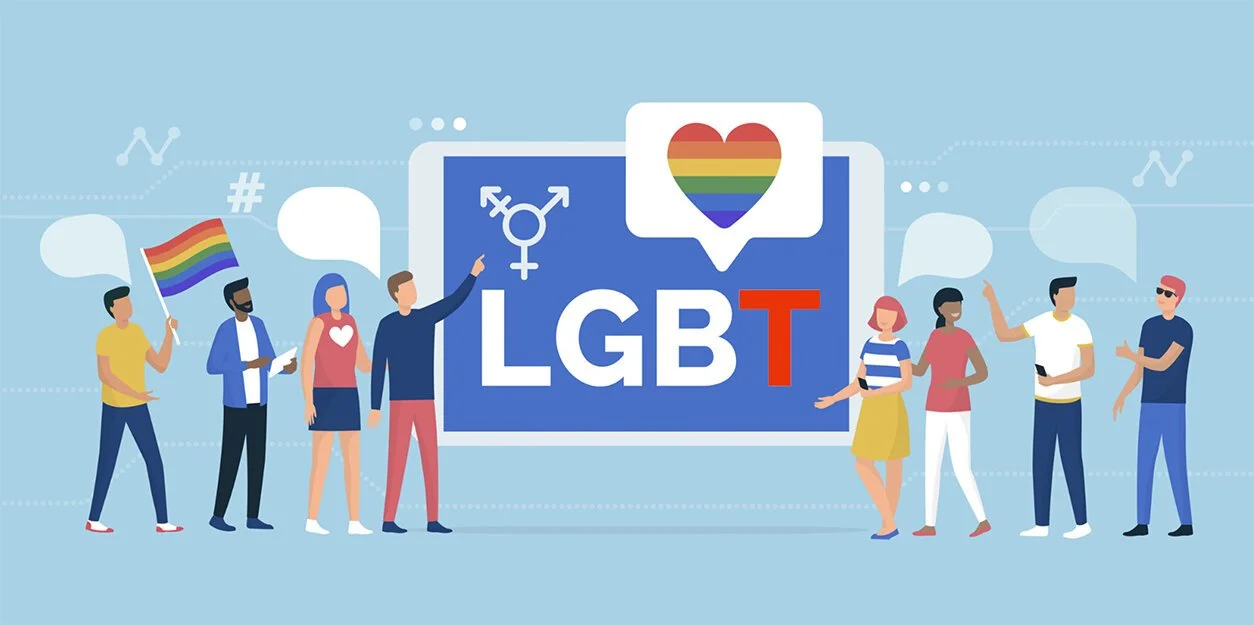Does the T Belong in LGBT?
While on the phone with my mother, a previously ill-informed and naïve adopter of queerphobic ideologies, I had a revelation. She, in the most earnest tone, asked me, “Now look, don’t jump down my throat. I don’t know the best way to ask this, but why, in your opinion, is the trans community included in the ‘LGBT’? I mean, transgender is not a sexual orientation.”
I paused.
Realizing I had never given much thought to the reason behind “transgender” being included in the acronym, it took me a minute to give her a solid, no-nonsense answer. I mean, she had a point! From the outside looking in, it would be kind of confusing to see a gender identity lumped into a group of sexual orientations. Why is the “T” included in “LGBT”?
“Well…,” I started. I was stumped. I didn’t have the words to explain to her that yes, being transgender has no influence on a person’s sexual orientation. And yes, transgender people can be straight, gay, bisexual, lesbian, and any other categorization of sexuality there is out there.
Picking up on the hesitation in my voice, she offered some assistance: “is that what transsexual is?”
Cringe mode activated.
After I calmly informed her that transsexual is an outdated and, to some, offensive moniker for trans women, I came to a sorta-kinda, almost-but-not-quite, half-baked conclusion.
So, what’s the T? And the Q!
For decades, the trans community has been pushed to the back of the queer rights movement. Despite trans activism being the source of many of the triumphs the community has seen, from the decriminalization of queer nightlife spaces in the late 70s to the legalization of gay marriage in the 2000s, many members of the “LGB” fail to realize all of the work the “T” has put in.
We have fought, bled, been jailed, and killed for daring to speak out on behalf of gay, bisexual, and lesbian people as a whole. We have scraped the walls of a community we’ve helped to build, to receive but a crumb of solidarity. We have asked for protection in gay spaces and had it thrown in our faces. We have exhausted all options but to fly to a new planet, establish our own rules and protections, and call it “Trannytopia” or something like that.
Queer, though it can be classified as both a sexual orientation and a gender identity, has held a negative connotation amongst gays and lesbians for years. It’s great that in recent history, the LGB community has made efforts to be more inclusive of trans, queer, and gender non-conforming people. In some way, we are all connected by the experience of having a societal disadvantage due to an aspect of our identities. But, do we not deserve more visibility within our own home? Are we not worthy of the same privileges our non-trans/queer counterparts eagerly enjoy?
These are the questions I asked myself while on the phone with my mother. I continue to ask myself these questions every time I see gay men and women perpetuate transphobic behavior. I continue to ask myself these questions every time gay men and women refuse to hold their friends accountable for the mockeries they make of queer individuals. I continue to ask myself these questions every time I am met with scorn or disdain for entering predominantly gay spaces (which, by the way, I’m getting paid to be there, sis!). It’s almost laughable to think that anyone gay, lesbian, or bisexual could be so hateful towards a group of people that helped build them up. Sadly, it happens every day.
By the end of our call, I had explained that the “T” is included in “LGBT” because a shared sense of solidarity, at equal levels, exists between the members of the community. Looking back over my premature answer, I realize that I’d made a mistake.
A better answer to her question, Why is the ‘T’ included in ‘LGBT’ would be, “Why do so many people try to act like it isn’t in the first place?”
—
Ivana Fischer is the Culture Editor of WUSSY and a film and media enthusiast who specializes in cultural studies. You can find her across all socials @iv.fischer
Archive
- September 2025
- August 2025
- May 2025
- February 2025
- November 2024
- October 2024
- September 2024
- August 2024
- July 2024
- June 2024
- May 2024
- April 2024
- October 2023
- July 2023
- June 2023
- May 2023
- April 2023
- March 2023
- February 2023
- June 2022
- April 2022
- March 2022
- January 2022
- December 2021
- October 2021
- September 2021
- August 2021
- July 2021
- June 2021
- May 2021
- April 2021
- March 2021
- February 2021
- January 2021
- December 2020
- October 2020
- September 2020
- August 2020
- July 2020
- June 2020
- May 2020
- April 2020
- March 2020
- February 2020
- January 2020
- December 2019
- November 2019
- October 2019
- September 2019
- August 2019
- July 2019
- June 2019
- May 2019
- April 2019
- March 2019
- February 2019
- January 2019
- December 2018
- November 2018
- October 2018
- September 2018
- August 2018
- July 2018
- June 2018
- May 2018
- April 2018
- March 2018
- February 2018
- January 2018
- December 2017
- November 2017
- October 2017
- September 2017
- August 2017
- July 2017
- June 2017
- May 2017
- April 2017
- March 2017
- February 2017
- January 2017
- December 2015
- November 2015
- October 2015
- September 2015
- August 2015
- July 2015
- June 2015
- May 2015
- April 2015








